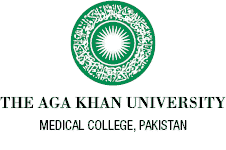The Centre for Bioinformatics and Computational Biology
The Centre for Bioinformatics and Computational Biology at Aga Khan University promotes analysis of data generated from various omics such as 16s rRNA and shotgun metagenomics, genomics, transcriptomics, epigenomics and ensures that storage space and computational power is available.
The journey started with the establishment of a biorepository of 2,500 pregnant women and their newborns between 2014 and 2017 as part of the Alliance for Maternal and Newborn Health Improvement (AMANHI) study funded by the Bill & Melinda Gates Foundation. This landmark project established that a high-quality biorepository can very well be created in a low-middle-income country setting with the necessary zeal and commitment.
Additional funding was received to create systems for in-house utilization of these biospecimens and generate data that is important and useful in the local and regional context. This required strengthening existing laboratory capacities and setting afresh a bioinformatics infrastructure. The bioinformatics component further consisted of hardware components and qualified personnel. Dr. Fyezah Jehan, Dr. M Imran Nisar, and their team have since acquired more than $4 million in funding.
Our external funding and support from the Office of the Dean makes it possible for us to create a workforce capable of critically analyzing and drawing meaningful conclusions from the data. The Centre has been keeping an eye on the evolving SARS-CoV-2 variants and is taking part in the genomic surveillance of other pathogens. We are collaborating with clinical diagnostics at the Department of Pathology and Laboratory Medicine to develop in-house pipelines for variant testing.


